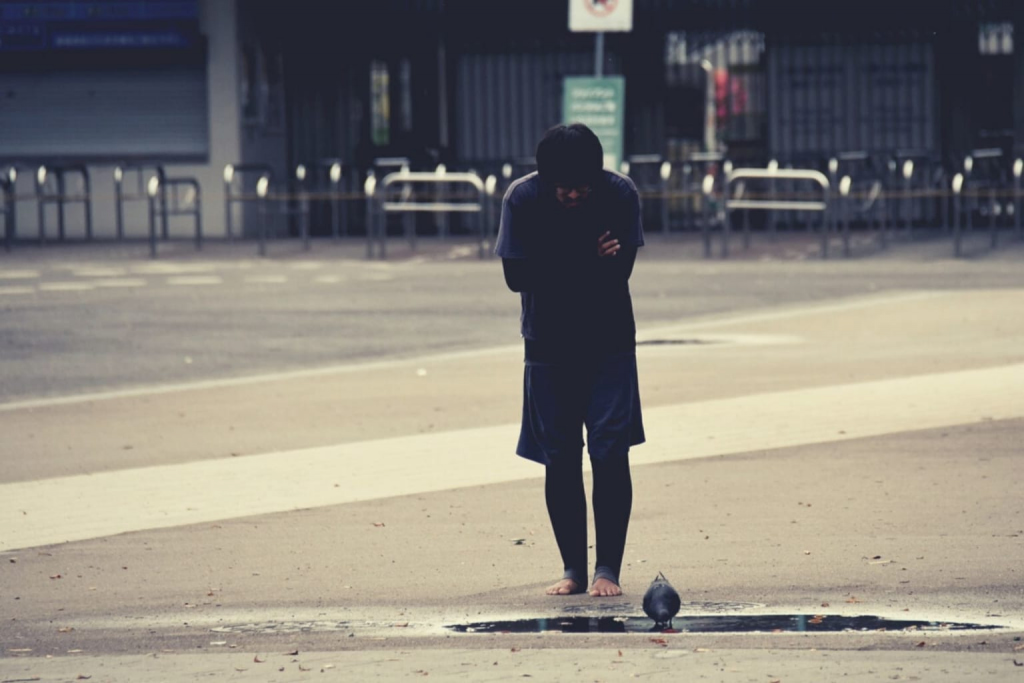Japan’s unhoused population does a lot to remain as invisible as possible. When they’re not living in internet cafes, they set up their temporary homes far away from populated areas or, if they do decide to shelter on the street or near train stations, they’ll almost always wait until the night so they don’t get in anybody’s way. It’s also why many of them refuse to beg for money. Their desire to not be seen has for a long time been shared by the Japanese government, which prior to 2000, didn’t even have a national budget for homeless welfare.
The reason for all of that is because, even now, being homeless in Japan is considered shameful. The country places great importance on family and ending up living on the streets is still thought of as a sign that a person either wasn’t able to start a family of their own or that they’ve somehow ruined their relationship with their relatives.
That is why, according to the Hamakaze Homeless Shelter in Yokohama, one of the most important things when helping unhoused people is to establish mutual trust with them and protect their dignity. This is one of the many ways how a look at Hamakaze can help us understand the larger issue of homelessness in Japan.
Hamakaze has always been envisioned as a temporary facility.
Established in 2003 in Kotobuki-cho (an impoverished area of Yokohama mainly known for doss houses and its population of day laborers), Hamakaze was one of the first purpose-built homeless shelters in all of Japan. It has room for 250 people. Of those only 20 are set aside for female residents because homelessness in Japan tends to disproportionally affect men. Still, this one facility should technically be enough to permanently house 65% of all of Yokohama’s homeless population, which, according to data from January 2020, stands at 381. To put this in perspective, that’s in a city with a population of more than 3.7 million.
Hamakaze, however, has always been envisioned as a temporary facility. Most people reside there for about three months, with half a year being the longest a person can expect to stay there. This is because, even more than “trust” or “respect,” the most important word at the facility is “self-reliance.”
Hamakaze’s official name is the Yokohama Life Self-Reliance Support Facility Hamakaze, and it lives by those words, from how they expect their residents to do their own laundry to how a lot of their resources are being focused on helping them find work. Support with job-hunting is probably the most important service offered by Hamakaze. The staff help guide their residents through the entire process, and are even helped out by officials from “Hello Work” (the popular name for the Public Employment Security Office) who visit Hamakaze a few times a week. But a person isn’t forced out of the facility the minute they find employment. Many, in fact, continue to live there while working full time jobs. A sudden change in life habits and environment, it is believed, can easily cause people to spin out and lead them down the same path that ended with them sleeping on the street in the first place. For this reason, Hamakaze likes to oversee and stay in touch with their residents for 2-3 months after they’ve found employment.
The staff also help people make doctor’s appointments and get to them on time, but they must always find that often elusive middle ground between being helpful and doing something that can be misconstrued as pity or a handout. Everyone, no matter where they live, values their pride, which in Japan has sadly worked against unhoused people’s self-interests, as many were (and still are) too ashamed to apply for welfare.
Hamakaze must for now work around these attitudes rather than fight them. The services that they offer emphasize the temporary nature of the facility and the fact that they’re simply offering a chance for people to help themselves.
It’s not a perfect system but we’re not living in a perfect world. Japan could do better but it’ll first require a major shift in the public consciousness. Until then, Hamakaze will continue doing the best that it can, given the situation that it’s in.
For more information on Hamakaze, see here (Japanese only).









